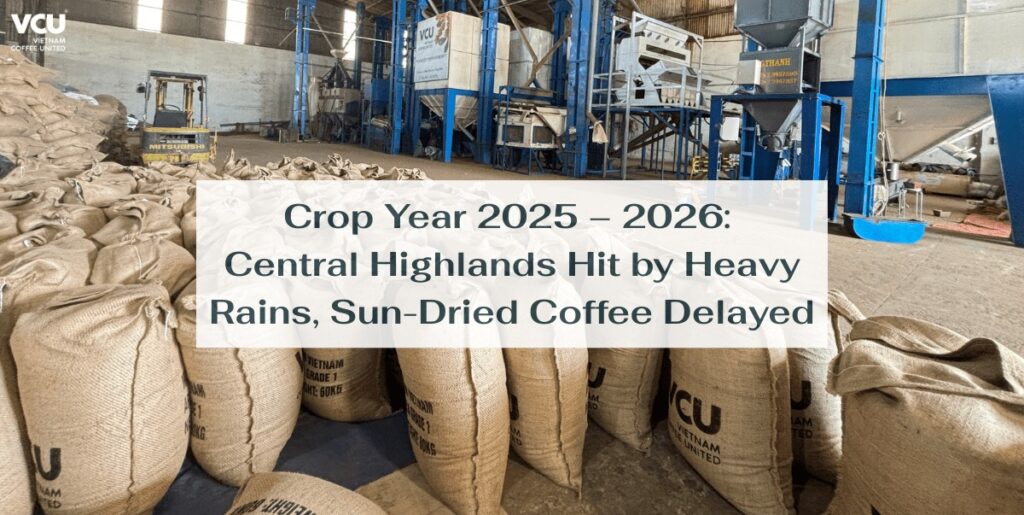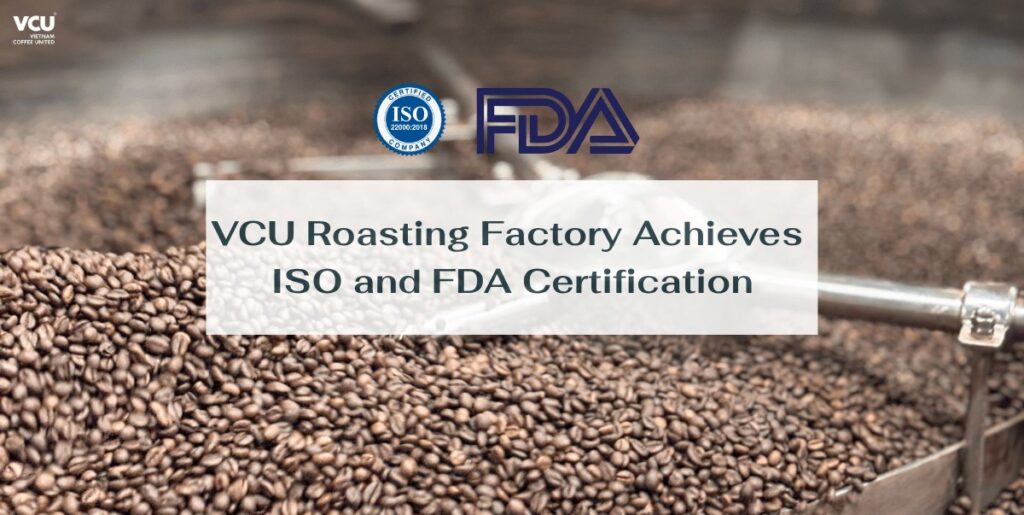What is Full Washed Process Coffee?
The Full-Washed Process is one of the most popular coffee processing methods worldwide, producing high-quality and consistent coffee beans. In this article, VCU will provide some information about Full Washed Process coffee.
What is the Full-Washed Process?
The Full-Washed Process, also known as wet fermentation, is a post-harvest processing method aimed at removing all the fruit pulp before the beans are dried. This process involves a series of steps starting from the moment the coffee is harvested, sorted, depulped, fermented, washed, and finally dried to a moisture content of 10-12%.
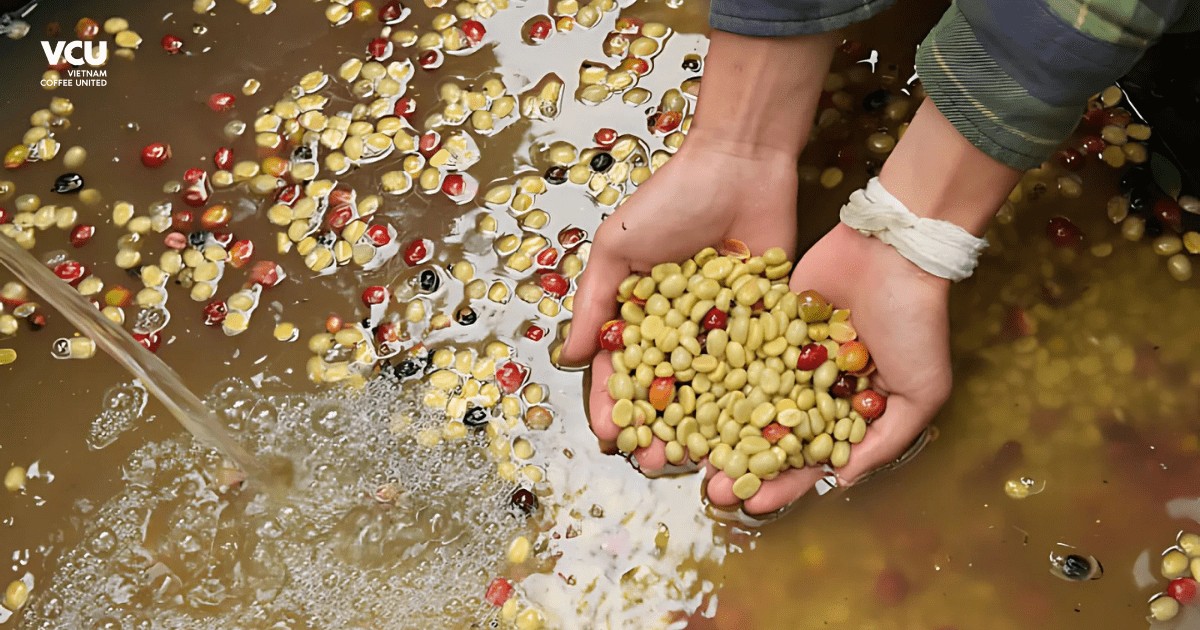
Here are the four main stages of the Full-Washed Process:
Sorting and Washing
After the coffee cherries ripen and are harvested, they are placed into water tanks to remove the defective cherries that float, along with impurities like branches, leaves, mud, and unripe cherries. For specialty coffee, sorting needs to be done early to prevent the coffee from losing moisture.
Pulping (Removing the Pulp)
This is considered the most crucial step in the Full-Washed Process. After washing, the outer skin and most of the fruit pulp are removed using a depulping machine to avoid unwanted fermentation and the development of off-flavors. The beans are then transferred to a clean water tank or fermentation trough, where the remaining fruit pulp undergoes fermentation and is removed.
The pulp of the coffee cherry contains a lot of pectin, which adheres tightly to the beans. The fermentation process breaks down the structure of the remaining pulp, allowing it to be washed away.
Fermentation to Remove Mucilage
Each processor uses different amounts of water during fermentation, usually in a 1:1 ratio. This stage significantly impacts the flavor profile of the coffee beans. The fermentation time depends on factors like altitude, surrounding temperature, enzyme concentration, and the thickness of the mucilage layer. Most coffees undergo fermentation for 12-36 hours. The fermentation process speeds up with higher temperatures. However, if fermentation takes too long, it may degrade the flavor, so it is essential to monitor it carefully.
Some producers use the technique of rolling the coffee beans between their fingers. If the surface of the beans feels smooth, and there is friction with a “scratching” sound, fermentation is complete. Others use a long stick inserted into the fermentation tank. If the stick stands upright, supported by water rich in pectin, fermentation has finished.
Washing and Drying
After fermentation, the beans are washed to remove any remaining impurities. The coffee is then spread out to dry under the sun, with regular turning to ensure even drying and avoid further fermentation or mold growth. In case of insufficient sunlight or high humidity, some producers use drying machines to reduce the moisture content of the beans to 11-12%. However, sun-dried coffee typically has better quality than machine-dried coffee.
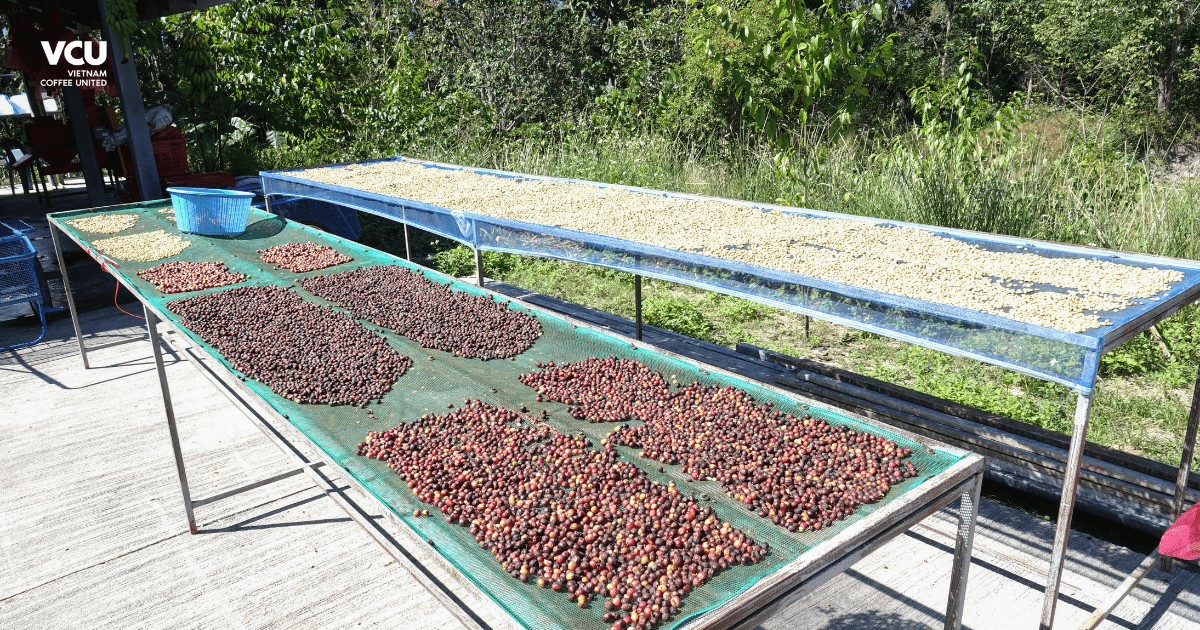
After drying, the beans are called “parchment coffee” and are stored in bags or may undergo further processing.
Which Coffees Are Typically Full-Washed Processed?
The Full-Washed Process is generally used for Arabica, Typica, Bourbon, and most specialty coffee varieties found in Central and South America or East Africa. Full-washed processed coffee is more expensive than dry-processed coffee due to the large amount of water used and the machinery required.
Robusta coffee, which has higher acidity than Arabica, tends to develop harsh, undesirable sour notes if processed with the Full-Washed Process, so it is often processed using dry or honey methods instead.
Characteristics of Full Washed Process Coffee
Advantages:
- Full washed process coffee tends to have superior flavor quality. Because the beans undergo fermentation using the natural enzymes in the beans or those from microorganisms, they preserve the maximum amount of acid found in the raw beans. This helps maintain the natural acidity, creating a flavor profile that coffee connoisseurs often prefer.
- Some distinctive flavors of Full Washed Process coffee (such as from Arabica coffee from Son La or Cau Dat) include rich fruity notes, high acidity, a full-bodied structure, and a smooth, mild bitterness.
Read more:
Disadvantages:
- The Full-Washed Process requires specialized knowledge and careful monitoring to avoid developing unwanted flavors. Additionally, it is more costly due to the high water usage and the need for machinery.
Despite these challenges, the Full-Washed Process is undeniably a key factor in producing high-quality coffee with a diverse range of flavors. Today, producers continue to invest in and improve this method to reduce costs while maintaining quality to meet consumer demands.
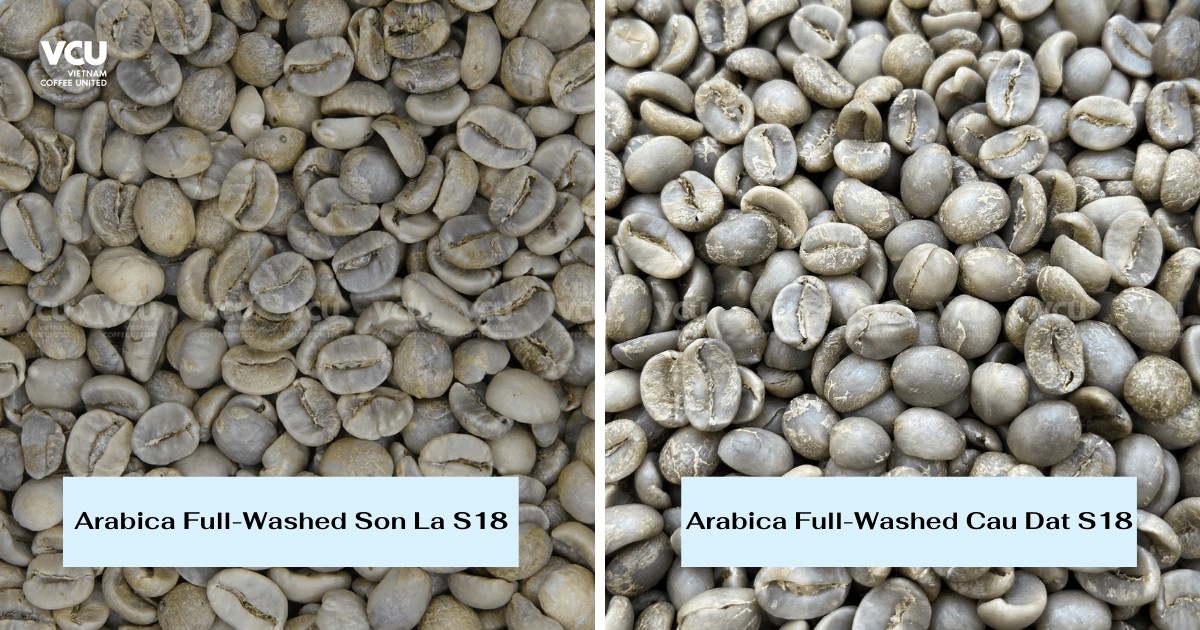
This has been some information about Full Washed Process coffee. We hope this article has provided useful insights for readers.
Currently, VCU offers a wide range of green coffee beans and roasted beans (Robusta, Arabica, Excelsa) with various processing methods like full-washed, natural, and honey. For advice and pricing, please contact VCU directly!
Contact Information
VCU Joint Stock Company (VCU JSC)
Address:
– Roasting Facility: Residential Group 6, Chu Prong Town, Chu Prong District, Gia Lai Province
– Green Bean Facility: Ia Der Commune, Ia Grai District, Gia Lai Province
– Hotline: +84 941 203 879
– Fanpage: VCU – Vietnam Coffee United
– Email: info@vietnamcoffeeunited.com

